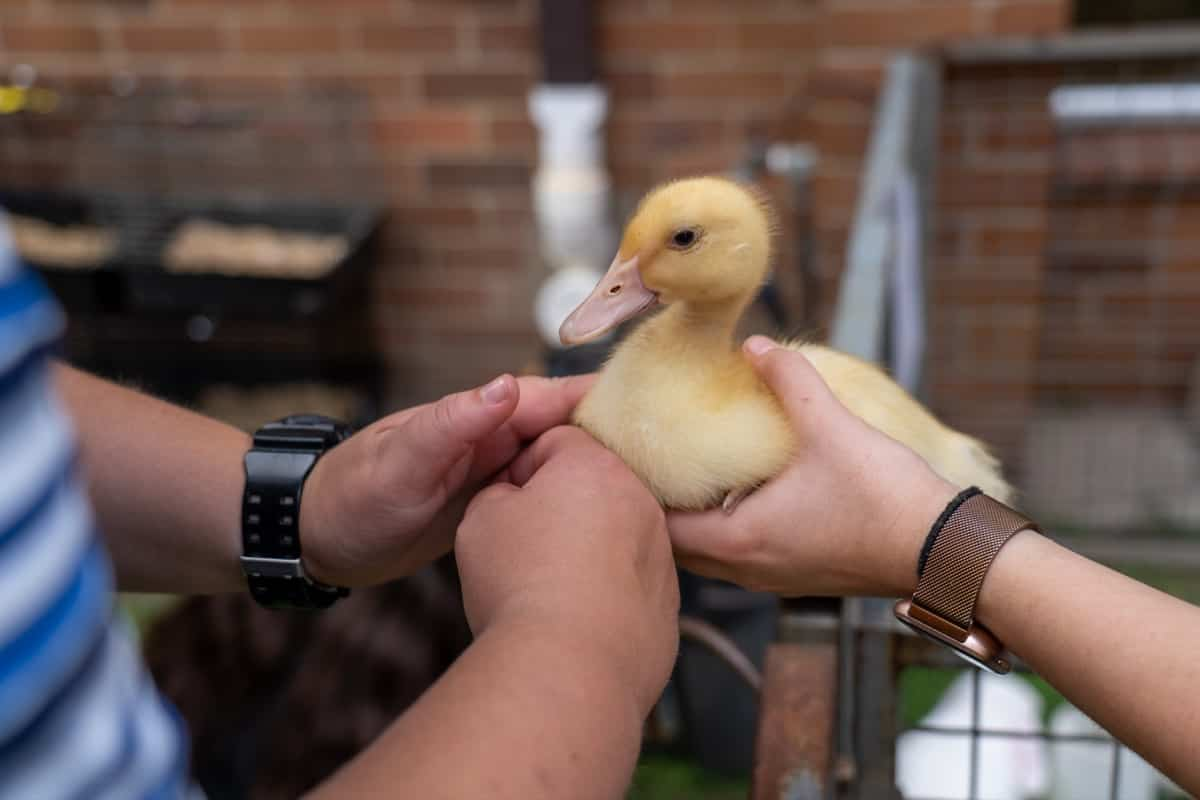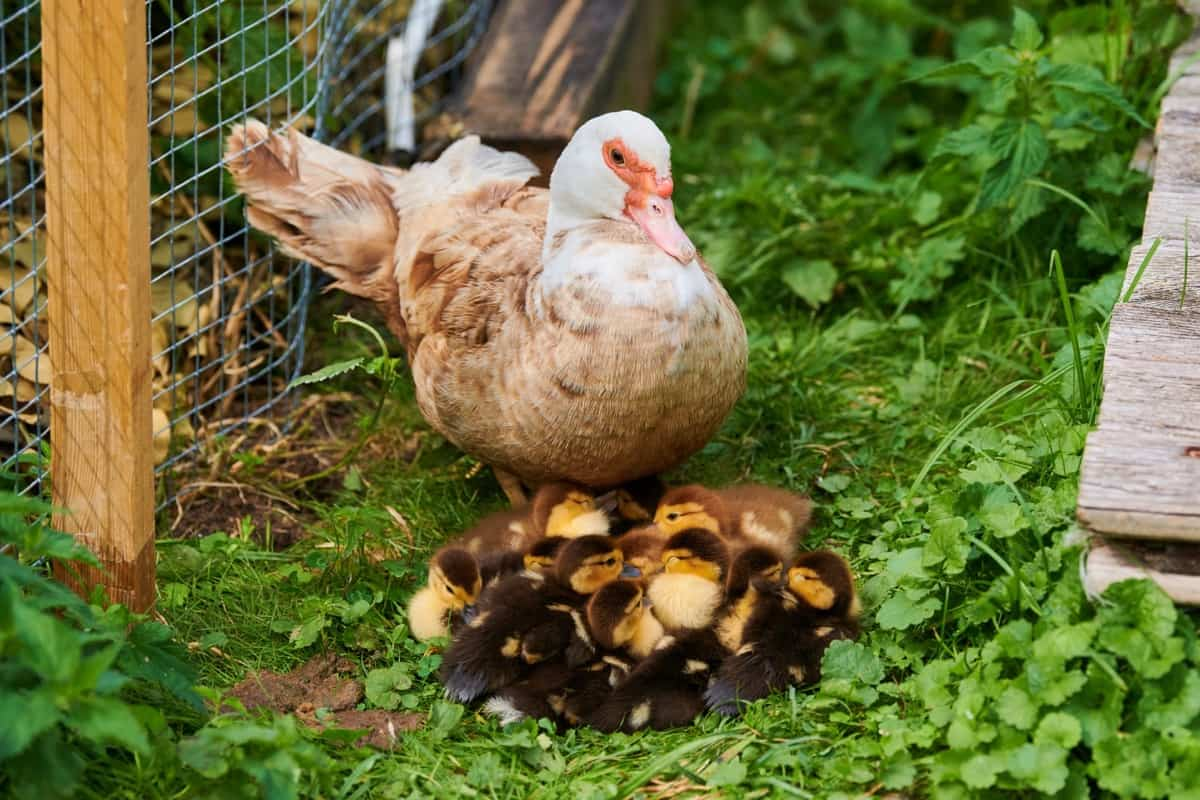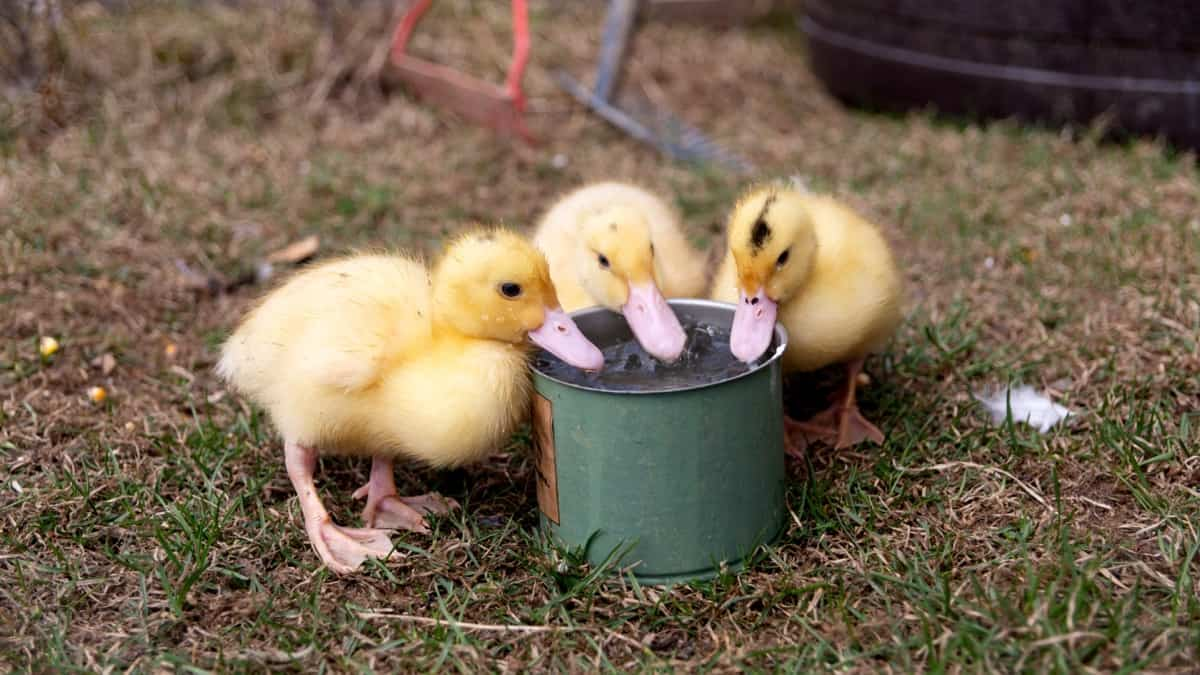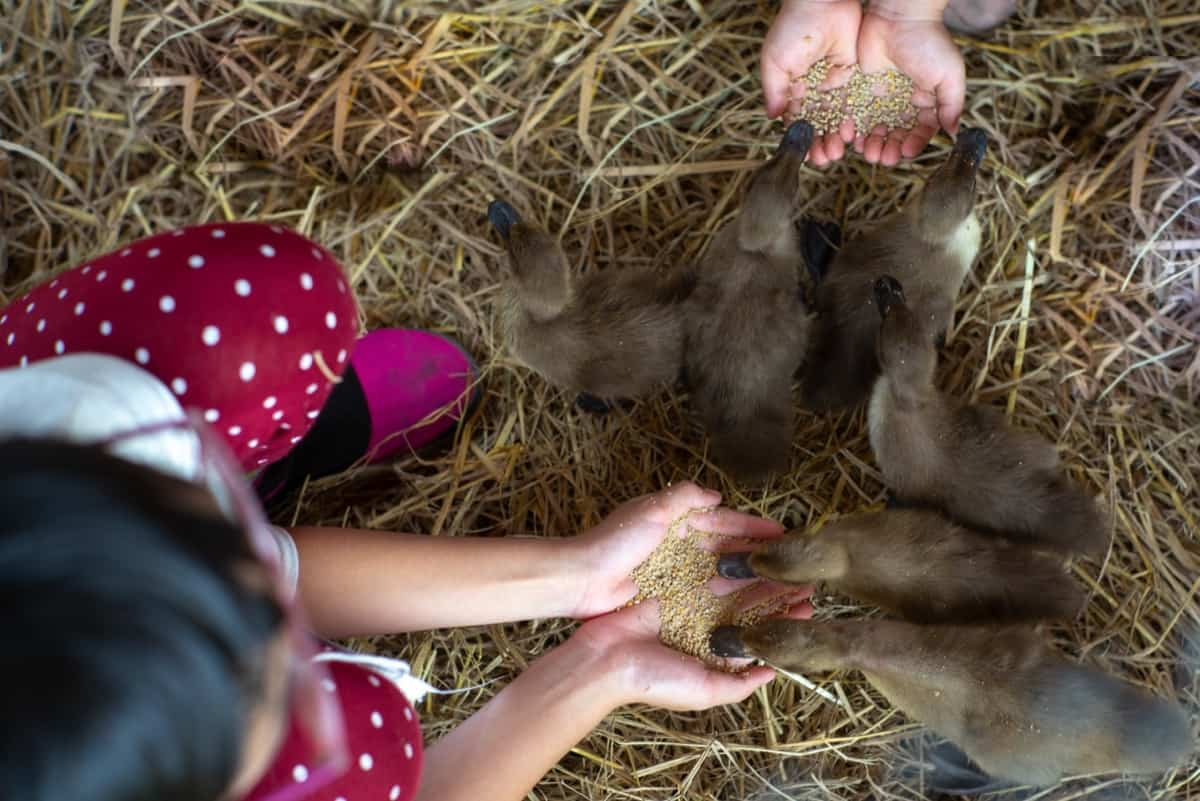When faced with an emergency involving baby ducks, it is crucial to ensure their survival by providing them with the appropriate diet. Feeding these delicate creatures the right food can significantly affect their health and well-being. Accessing specialized feeds for baby ducks may not always be possible in emergencies.

Therefore, it is important to understand their recommended diet in such circumstances. This article will tell you more about what to feed baby ducks in an emergency, ensuring their nutritional needs are met and they have the best chance of thriving.
Emergency Feeding Options for Baby Ducks
The most common option is to provide a specialized baby duck formula, which can be found at most pet stores or online. This formula is specifically prepared to meet the nutritional needs of baby ducks and can be easily prepared by following the directions on the package. If a specialized formula is unavailable, an alternative option is to prepare a makeshift formula using a mixture of mashed hard-boiled egg, water, and a small amount of poultry feed.
It l is important to ensure the mixture is well-blended and served at room temperature. In both cases, feeding the baby ducks with a small syringe or dropper is crucial, taking care to avoid overfeeding. Additionally, it is recommended to seek immediate veterinary assistance to ensure the health and well-being of the baby ducks.
Nutritional Requirements for Baby Ducks in Emergencies
- Baby ducks require a balanced diet consisting of high-quality, nutrient-rich food.
- This includes a combination of commercial duck starter feed specifically formulated for their needs and fresh water.
- The feed should contain essential nutrients such as proteins, vitamins, and minerals to support their growth.
- Small, frequent feeding throughout the day is recommended to meet their energy demands.
- It is important to consult with avian experts or veterinarians to ensure the right nutrition is provided to baby ducks in emergencies.
In case you missed it: Saxony Duck Breed: Physical Appearance, Temperament, Egg Production

Feeding Baby Ducks During Emergencies: Recommended Diet
- It is important to provide them with a balanced diet that includes a combination of proteins, carbohydrates, and vitamins.
- Mash the apples and pears before you serve them to your little birdies. They would be too hard to consume without mashing for the baby ducks. But make sure you exclude the seeds and get just the flesh.
- Tomatoes: Only flesh is allowed since the vines and leaves would be toxic for the baby ducks. Gently squeeze the tomatoes (not too hard unless you want to make juice out of them) and make a paste, and then you can serve.
- Offering cooked grains can give them the necessary carbohydrates.
- Avoid feeding them any processed or sugary foods. These can harm their delicate systems.
Emergency Food Sources for Baby Ducks
- In such circumstances, it is crucial to have access to emergency food sources that can sustain these delicate creatures.
- Several options are available to nourish baby ducks until a more suitable solution can be found.
- One such option is commercial waterfowl starter feed to meet the nutritional needs of young ducks.
- Another alternative is finely chopped vegetables, fruits, and greens, such as lettuce and spinach, which can be offered as a temporary substitute.
- Additionally, soft-boiled eggs can serve as a protein-rich emergency food source for baby ducks.
- It is important to remember that emergency food sources should only be used as a short-term solution, and efforts should be made to provide baby ducks with their natural diet as soon as possible.
Feeding Strategies for Orphaned Baby Ducks in Emergencies
Feeding Schedule: Establish a feeding schedule and adhere to it consistently. Initially, feed the baby ducks every 2-3 hours during their waking hours.
Feeding Tools: Use a small syringe without a needle or a small dropper to dispense the feeding formula. Gradually introduce the formula to the ducklings, ensuring they are swallowing properly.
Quantity and Frequency: Offer a small amount of food initially and gradually increase the quantity as the ducklings grow. Adjust the feeding frequency accordingly, reducing the number of feedings as the ducks become more independent.
Hand-feeding: For weak or reluctant ducklings, hand-feeding may be necessary. Gently hold the duckling and use a syringe or dropper to provide small amounts of formula into its beak directly. Be careful not to force-feed or overfeed.
In case you missed it: What You Should Know About Raising Chickens and Ducks Together

Introduction to solid food: As the ducklings grow, gradually introduce them to finely chopped greens, insects, and commercial duck feed. This will help them develop their natural feeding instincts and prepare them for a balanced diet.
Emergency Feeding Guidelines for Baby Ducks
Food types: Baby ducks require a balanced diet that combines commercial duckling starter feed, fresh greens, and insects. These food sources provide essential nutrients for their growth and development.
Quantity: As a general rule, they should consume approximately 10-15% of their body weight in food per day.
Hydration: Baby ducks must always have access to clean and fresh water. Ensure the water is shallow enough for them to reach without the risk of drowning.
Avoid Overfeeding: Overfeeding can lead to health issues like obesity and digestive problems. Monitor the food given to baby ducks, ensuring they consume an appropriate quantity.
Observation: Regularly observe the baby ducks’ behavior, growth, and droppings to ensure they are healthy and thriving. A veterinarian should address any signs of abnormal behavior or health concerns promptly.
What to Feed Baby Ducks in an Emergency When Regular Food is Unavailable
- In such situations, you can feed them a mixture of finely chopped vegetables, such as lettuce, spinach, and peas.
- Additionally, you can provide them with small amounts of boiled eggs, which are a good source of protein.
- Grains: If regular duck food is unavailable, you can consider offering grains as a temporary substitute. Cooked rice, oats, or even cornmeal can be given to baby ducks in small quantities.
- Remember to provide fresh water for the ducks to drink and keep their feeding area clean to prevent the growth of bacteria.
Emergency Diet for Baby Ducks: Suitable Alternatives
Crumbled Cereal: In emergencies, crumbled cereal can feed baby ducks temporarily. Choose cereals low in sugar and additives, such as plain oatmeal or bran flakes. Soak the crumbled cereal in water until it forms a mushy consistency before offering it to the ducks.
Duckling Starter Crumbs: Duckling starter crumbs are specifically formulated to provide essential nutrients for the growth and development of baby ducks. These crumbs are readily available in most pet stores or online and can be a suitable alternative to their regular diet.
Mealworms and Insects: Insects, such as mealworms, can be a good source of protein for baby ducks. You can purchase these protein-rich foods from pet stores or online, offered as a treat or mixed with their regular diet if other options are unavailable.
In case you missed it: Natural, Sustainable, and Effective: 13 Benefits of Duck Manure Fertilizer in Agriculture

Conclusion
During emergencies, it is crucial to have a plan in place for feeding baby ducks. Their nutritional requirements must be met for them to thrive. By following the recommended diet, utilizing emergency food sources, and implementing appropriate feeding strategies, we can ensure the health and well-being of baby ducks during challenging times.
- Feed Your Flock for Less: Top 10 Tips to Save on Chicken Feed
- Ultimate Guide to Ossabaw Island Hog: Breeding, Raising, Diet, and Care
- Hatching Answers: The Top 10 Reasons Your Chickens Aren’t Laying Eggs
- Eggs and Economics: Breaking Down the Cost of Raising Backyard Chickens
- Defend Your Greens: Proven Methods to Keep Iguanas Out of Your Garden
- Ultimate Guide to Cinnamon Queen Chicken: A Comprehensive Guide for Beginners
- Ultimate Guide to California Tan Chicken: Breeding, Raising, Diet, Egg-Production and Care
- Ultimate Guide to Marsh Daisy Chicken: Breeding, Raising, Diet, and Care
- 10 Types of Chicken Farming Businesses You Can Start for Profits